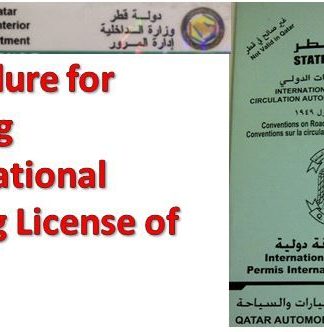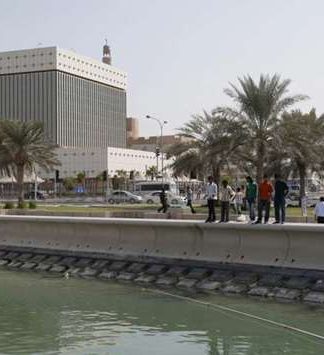
Payment for overtime work shall depend upon your designation and nature of your work.
I have been working as a personal manager in Abu Dhabi under an unlimited contract for the last eight months with a salary of Dh12,500. I am an MBA with an attested certificate. Now I want to change my job. Please advise the possibility of ban and the available options to remove the ban.
You may resign from your employment serving a 30 days’ notice to your employer as you are on an unlimited contract. This is in accordance with Article 117 (1) of the Federal Law No. 8 of 1980 (Labour Law), which states: “Both the employer and the worker may terminate a contract of employment of unlimited duration for a valid reason at any time following its conclusion by giving the other party notice in writing at least 30 days before the termination.”
Since you have not completed one year of service, an automatic six months or one year labour ban may be imposed by the Ministry of Labour upon request by your employer. No employment visa shall be issued to you until the period of the ban is completed.
However, it may be noted that your prospective employer may make efforts to lift the ban by demonstrating that you will be given a salary as per the prescribed norms. The ministerial order No. 1186 of 2010 lays down the conditions to impose and lift a ban.
Pursuant to this order, even if a labour ban gets imposed, the ban may be subsequently lifted if the professional qualifies for the salary requirements. This is in accordance with Article (4) of the ministerial order which states: “As an exception to the provision of Item No (2) of Article 2 of this Resolution, the Ministry may issue a work permit to an employee without requiring the two-year period in the following cases:
a) In the event that the employee is starting his new position at the first, second or third professional levels after fulfilling the conditions for joining any of these levels according to the rules in force at the ministry, and provided that his new wage is not less than Dh12,000 at the first professional level, Dh7,000 at the second professional level and Dh5,000 at the third professional level.”
Thus, as a holder of an MBA degree your prospective employer should provide you a salary of at least Dh12,000 in order to have the labour ban lifted from you.
KNOW THE LAW
Payment for overtime work shall depend upon your designation and nature of your work, as there are certain areas of work which have been exempted from the applicability of the rules pertaining to payment for overtime work
Case against ‘missing’ husband
I am an Indian national married to a Pakistani man at the Dubai Court in 2012. My son was born in Dubai and is an Indian national. We both are Muslims. We moved to Canada and came back to the UAE three months ago.
My husband, who was supposed to be in Pakistan, suddenly went missing on September 6. When I investigated, I found that he is with his Australian girlfriend in Doha, Qatar.
I tried to contact him but was unsuccessful. I came to Dubai two weeks ago with my son, thinking that his parents will help me, but instead his mother gave me a divorce deed which has got my fake signatures on them. It was issued in Pakistan even though I never went to Pakistan during those dates. After a few days my mother-in-law said that my husband wouldn’t be coming back and will stay in Qatar.
I also found out that they both aren’t married yet, because the Australian girl is also Muslim and she doesn’t have her father’s consent or power of attorney to marry my husband in Doha court. Now I don’t know what to do or where to go. Currently, my son and I are on a visit visa to Dubai where my in-laws live.
My husband has never supported me financially. My husband also owns a property in Ajman under his mother’s name.
I need to know how can I claim maintenance, alimony, my son’s expenses and my expenses. I am jobless at the moment and it’s difficult to survive.
I also want to know if I can file a case against him for adultery and domestic violence and also harassment and forgery (my fake signatures on divorce deed). I am still his legal wife and my and my son’s passport carries his name.1)
You may retain services of a legal counsel in Pakistan to check the authenticity of the divorce deed issued in Pakistan and accordingly seek an order from the court to set aside the divorce deed with your forged signature on it. You may file a criminal case through your legal counsel in Pakistan against your husband in Pakistan for forging your signature.
2) You have not mentioned whether your husband is a Pakistani national or a Canadian national. In case your husband is a Canadian national you may file a case against your husband in a court in Canada to claim alimony and maintenance for yourself and your child.
Further, you may also seek divorce from your husband should you wish to do so from a court in Canada.
3) Since your husband is now based in Doha, Qatar, you may retain services of a legal counsel in Doha, Qatar, to claim maintenance from your husband as well as you may file a case for forging your sign on the divorce deed (after you obtain a suitable order from the court in Pakistan) and for committing a violation of the laws of Qatar for living with a female without being married to her.
Smoking colleagues and harassment? There are solutions
I have two serious issues going on in my office for which I need legal guidance.
1) Smoking: Most of the managers smoke inside the office, which makes life tough for most people.
2) Harassment: My directors misbehave with us and don’t let us go home after office hours, sometimes asking us to work for 14 to 16 hours in a day.
We work on all public holidays and without an off on Fridays. If we don’t come on Friday, our pay is deducted.
Please suggest what can be done. I want to complain, but am scared as I will be terminated.
It should be noted that providing a good working environment is the basic responsibility of the employer. Article 94 of the Federal Law No. 8 of 1980 relating to Labour Relations (the ‘Labour Law’) states: “Without prejudice to the provisions of the regulations and orders issued by the competent government authorities, an employer shall ensure perfect cleanliness and ventilation in each workplace and shall provide each workplace with adequate lighting, drinking water and toilets.”
Article 97 of the Labour Law states: “The Minister of Labour and Social Affairs may, after consulting the Minister of Health, by order prescribe the general precautions and health protection measures applicable to all establishments employing works, and, in particular, the measures relating to safety, lighting, ventilation, canteens, the supply of drinking water and water for washing, the elimination of any dust and smoke polluting the air, and the precautions to be taken against fire and electricity.”
You may lodge a complaint with the senior management and or shareholders of your employer against such managers who smoke at the work place during working hours. It is the responsibility of your employer not to allow any employee to smoke in the working premises and the employer may post ‘No Smoking’ sign/boards within the premises.
Alternatively, your employer may exclusively provide a ‘smoking zone’ with all safety measures outside the working premises particularly in the resting area which allows the employees who wish to smoke may be doing so during the break period.
Further, Ministerial Order No. 28/1 of 1981 regarding Mode Disciplinary Code, A Guide to Employees in making Disciplinary Regulations Applied in Their Undertaking, an employee who smokes in his work place or in a place not allowed for smoking has to pay a penalty of one day’s salary for first time offence, two days’ salary for second time offence, three days’ salary for third time offence and five days’ salary as penalty for fourth time offence. In the case if repeated more than the fourth time, the employer may issue a warning notice and terminate such employer on disciplinary grounds.
Pursuant to your second query, your employer may require you to work during public holiday(s) and day(s) off, provided your employer compensates you with (i) a holiday on another day; and (ii) 50 per cent extra salary of your basic monthly salary, on pro rata basis. In the event the employer does not compensate with a holiday on another day then the employer should compensate you by paying 150 per cent of your basic monthly salary, on pro rata basis in accordance with Article 81 of the Labour Law which states: “Where the circumstances of the work require a worker to work on public holiday or rest day in respect of which the worker is entitled to full or partial pay, the worker shall be granted compensatory leave in respect of such day(s), together with a bonus equal to 50 per cent of his remuneration. If the worker is not compensated for such day(s) by leave, his employer shall pay him a bonus equal to 150 per cent of the basic remuneration in respect of the days worked.”
In accordance with the provisions of the Labour Law, the maximum normal hours of work has been prescribed as eight hours a day or alternatively 48 hours a week, which may subsequently be increased to nine hours a day depending on the place of work. This is in accordance with Article 65 of the Labour Law which states:
“The maximum normal hours of work of adult workers shall be eight a day or 48 a week. The hours of work may be increased to nine hours a day in commercial establishments, hotels and cafes and of guard duties and any other operations where such increase is authorised by order of the Minister of Labour and Social Affairs. The daily hours of work may be reduced in the case of arduous or unhealthy operations by order of Minster of Labour and Social Affairs. The normal hours of work shall be reduced by two during the month of Ramadan.
The time spent on travelling between home and place of work shall not be included in the hours of work.”
Further, it may be noted that all employees are entitled to receive payments in respect of overtime work. Overtime work is defined as the work which is done more than the normal hours of work. This is in accordance with Article 67 of the Labour Law which states, “where the circumstances of work require a worker to work more than the normal number of hours any period worked in excess shall be treated as overtime, for which the worker shall receive the remuneration equal to that corresponding to his normal hours of work, plus a supplement of at least 25 percent of the remuneration.”
Subsequently Article 68 of the Labour Law states: “Where the circumstances of the work requires a worker to work overtime between 9pm and 4am he shall be entitled in respect of such overtime to the remuneration stipulated for his normal hours of work, plus a supplement of at least 50 per cent of the remuneration.”
However, it may also be advised that the payment for overtime work shall depend upon your designation and nature of your work, as there are certain areas of work which have been exempted from the applicability of the rules pertaining to payment for overtime work. This is in accordance with Article 72 which states: “The provisions of this Chapter shall not apply to the following classes of person:
“Persons holding responsible managerial or supervisory positions, if such positions confer upon the holders the powers of an employer over workers. The categories in questions shall be specified by order of the Minister of Labour and Social Affairs.
“Workers constituting the crew of seagoing ships and persons employed at sea and enjoying special conditions of service on account of the nature of their work, except dock workers engaged in loading and unloading and related operations.”
Further, it may be advised that if you are facing harassment from your employer, you may consider to leave your employment without giving a notice. This is in accordance with Article 121 of the Labour Law which states: “A worker may abandon his work without notice in either of the following cases:
1) If the employer fails to honour his obligations towards the worker, as provided for in the contract or in this law.
2) If he is assaulted by the employer or the employer’s legal representative.”
And in view of the foregoing, it would be prudent on your part to approach the Ministry of Labour, UAE, and file a complaint against your employer on the above irregularities.






























